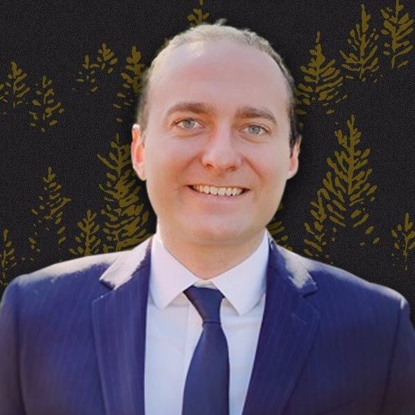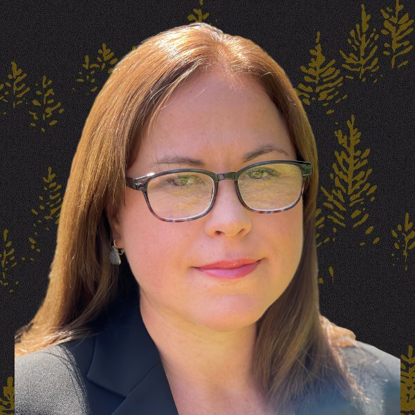
Beaverton Estate Planning Attorneys
Protecting Your Loved Ones & Your Legacy
Whether you own a home, have your own business, or want to establish guardianship on behalf of your minor children should the unthinkable happen, it’s always important to plan for the future. When it comes to protecting your loved ones, your assets, and your legacy, you have many tools available to you. A solid estate plan utilizes these tools to ensure your wishes are carried out after you are gone.
At Pacific Cascade Legal, we help clients in Beaverton and throughout Washington County create comprehensive estate plans tailored to their unique needs. Everyone is different, and no two estate plans should be exactly alike. With this in mind, we work directly with our clients to better understand their concerns; then, we create customized plans designed to meet their goals.
Continue reading to learn more or contact us today to schedule an initial consultation with one of our Beaverton estate planning attorneys.
Understanding Estate Planning
Estate planning involves creating various documents and using available tools to plan for unexpected and expected future events. In addition to determining how your properties, assets, and debts will be divided after your death, estate planning can be used to name beneficiaries, appoint individuals to manage your estate if you become incapacitated, and establish guardianships for your minor children.
Common Estate Planning Tools
Estate planning utilizes a variety of tools to help you prepare for various future events. Each of these tools accomplishes something different; a solid estate plan should include a mix of different documents and tools to ensure careful preparation and protection of your estate.
Some of the most common estate planning tools include:
- Wills: A last will and testament, or simply a will, is a basic estate planning tool. This document allows you to determine how you would like your properties and assets to be distributed after you pass away. It also allows you to name beneficiaries (or people who will inherit your assets) and who will oversee the administering of your estate.
- Trusts: A trust is a legal relationship in which a trustee holds assets on behalf of beneficiaries. Trusts can be structured in various ways and can dictate specific transfer terms to beneficiaries. By avoiding probate (in most cases), assets held in a trust may be accessible to beneficiaries more quickly than those transferred through a will. Additionally, an irrevocable trust may not be included in the taxable estate, resulting in less tax obligation upon death.
- Conservatorships: A conservatorship allows a court-appointed individual to take control of a minor's or incapacitated person's financial and personal affairs. In some cases, a conservator may also serve as the person’s legal guardian, meaning they can legally care for the individual’s physical needs, such as their living arrangements, health care, etc.
- Guardianships: A guardian is someone you name (or someone appointed by the court, if you do not name one) to care for your minor children or adult dependents if you become unable to do so. In estate planning, establishing a guardian can ensure that your children are cared for by a loved one in the event that you become incapacitated or pass away.
- Advanced Health Care Directives: By creating an advance health care directive, you can inform your physician, family, and friends of your health care preferences. This includes specifying the types of special treatment you would like or not like to receive at the end of life, detailing whether you desire diagnostic testing or surgical procedures, indicating your stance on cardiopulmonary resuscitation, and communicating your decision regarding organ donation.
- Powers of Attorney: A legal authorization known as power of attorney (POA) allows a designated person to act on behalf of another individual. The agent, also referred to as attorney-in-fact, receives authority from the POA to make decisions about the principal's property, finances, investments, or medical care. Financial and healthcare POAs are the two primary types, offering both broad and limited powers to the attorney-in-fact.
- Charitable Planning: Many people choose to donate a portion or all of their assets to charity after their passing. Charitable planning allows you to designate which charities you would like to give to, as well as how much you plan to donate.
- Asset Protection Planning: Whether you own a small business or have multiple real estate properties, asset protection planning can provide specific protections for these and other assets. Our Beaverton estate planning attorneys can help you find a solution that suits your particular needs and goals.
The Benefits of Creating an Estate Plan
There are many reasons to create an estate plan. Though many people put it off, creating an estate plan is one of the best ways to legally protect your loved ones, heirs, and hard-earned assets.
Some of the many benefits of estate planning include that it can help:
- Protect Your Beneficiaries: Estate planning helps ensure your beneficiaries receive the assets you want them to have and in the manner you want them to receive them.
- Minimize Taxes: Estate planning can minimize the amount of taxes your beneficiaries will have to pay on the assets they inherit.
- Avoid Probate: Estate planning can help avoid the probate process, which can be lengthy, expensive, and public.
- Provide for Incapacity: Estate planning can identify someone to manage your financial and personal affairs if you are incapacitated and unable to do so yourself.
- Reduce Family Conflicts: Estate planning can help prevent disputes among family members regarding the distribution of assets.
- Protect Your Business: Estate planning can ensure that your business interests are protected and that the business can continue to operate in the event of your death.
- Bring Peace of Mind: Ultimately, estate planning can bring you and your loved ones peace of mind knowing that your affairs are in order.
Note that everyone can benefit from an estate plan, regardless of the size or scope of their assets. Whether you have significant assets, children from a previous marriage, or a relatively small estate, proper planning can help ensure your loved ones are protected.
If you would like to begin the estate planning process, reach out to Pacific Cascade Legal today to request a consultation with one of our experienced and knowledgeable attorneys. From our office in Beaverton, we serve clients throughout Washington County and all of Oregon.
How the Estate Planning Team at Pacific Cascade Legal Can Help
We offer comprehensive estate planning services, including assistance in drafting wills, trusts, powers of attorney, and other planning documents. We know how these various tools work and how best to utilize them to your advantage.
Our attorneys are adept at handling the needs of clients from all walks of life. We are happy to answer any questions you may have and can advise you on the best course of action during an initial consultation. In addition to creating new estate plans, we also help our clients modify existing documents to accommodate changing needs.
Contact us online or by phone at (503) 217-2600 today to get started.
Estate Planning FAQ
What happens if I don’t have an estate plan?
If you don’t have an estate plan—or, at the very least, a will—when you pass away, your assets, properties, and debts will be divided based on intestate succession. This means that your estate will be distributed based on state laws, not your specific wishes. Additionally, your estate will pass through probate, and the process will likely be slower than if you had drafted a will or other estate planning documents. Your assets may also be subject to higher taxes.
Does Oregon have an estate tax?
Yes, Oregon imposes an estate tax on all estates valued at $1 million and higher (after the calculation of all assets/debts). The estate tax in Oregon ranges between 10 and 16% of the total value of the estate, depending on many factors.
Is it possible to avoid the estate tax in Oregon?
If your estate is subject to the state’s estate tax, you may have several options when it comes to avoiding or minimizing taxes. We encourage you to reach out to our team at Pacific Cascade Legal to learn more during an initial consultation.
Is probate mandatory?
Probate refers to the legal process of reviewing a will (and, in some cases, other estate planning documents) to determine its validity. Probate also involves the overseeing of asset distribution according to the deceased’s will or intestate succession laws. As such, probate is almost always necessary when it comes to administering an estate. However, there are certain steps you can take to reduce the amount of time probate takes, the risk of complications, and other factors that can make the probate process more complex and challenging for your loved ones.

-
 About Us
About Us -
 Resources
Resources -
 Video FAQ
Video FAQ

Meet Your Advocates
Focused on Client Relationships, Integrity, Results & A Better Tomorrow
-
 Lewis Irwin Landerholm Founding Partner
Lewis Irwin Landerholm Founding Partner -
 Will M. Jones Partner
Will M. Jones Partner -
 Alan Nieczyporuk Attorney
Alan Nieczyporuk Attorney -
 Natalie Thorp Jr. Partner
Natalie Thorp Jr. Partner -
 Kimberly Brown Attorney
Kimberly Brown Attorney -
 Darin Wisehart Attorney
Darin Wisehart Attorney -
 Sarah Bain Attorney
Sarah Bain Attorney -
 Olivia Raymond-Williams Attorney
Olivia Raymond-Williams Attorney -
 Timothy Downin Attorney
Timothy Downin Attorney -
 Christy Carpenter Limited License Legal Technician
Christy Carpenter Limited License Legal Technician -
 Shanni Moore Paralegal
Shanni Moore Paralegal -
 Eryn Sisson Paralegal
Eryn Sisson Paralegal -
 Lauren Antrim Associate Manager of Finance, Human Resources & Administration
Lauren Antrim Associate Manager of Finance, Human Resources & Administration -
 Terrance Hogan Attorney
Terrance Hogan Attorney -
 Andy Kralios Attorney
Andy Kralios Attorney -
 Michael Trotter Attorney
Michael Trotter Attorney -
 Zach Santos Attorney
Zach Santos Attorney -
 Lisa Parsons Lead Paralegal / Workflow & Training Specialist
Lisa Parsons Lead Paralegal / Workflow & Training Specialist -
 Lesley Sepetoski Paralegal
Lesley Sepetoski Paralegal -
 Laura Pride Paralegal
Laura Pride Paralegal -
 Jeannette Cordova Paralegal
Jeannette Cordova Paralegal -
 Kailey Maginnis Paralegal
Kailey Maginnis Paralegal -
 Teena Quichocho Paralegal
Teena Quichocho Paralegal -
 Zulema Cornejo Paralegal
Zulema Cornejo Paralegal -
 Claudine McKague Legal Assistant
Claudine McKague Legal Assistant -
 Rachel Woleben Director of Finance, Human Resources, and Administration
Rachel Woleben Director of Finance, Human Resources, and Administration -
 Kari Landerholm Director, Marketing & Growth
Kari Landerholm Director, Marketing & Growth -
 Steve Altishin Director, Client Partnerships
Steve Altishin Director, Client Partnerships -
 Jeremy Armitage Associate Manager of Finance, Technology, and Administration
Jeremy Armitage Associate Manager of Finance, Technology, and Administration -
 Claudia Preciado Client Billing Manager
Claudia Preciado Client Billing Manager
































